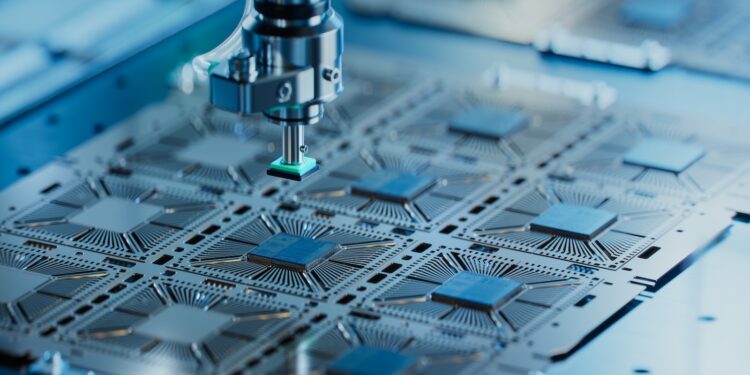The iPhone 18 is set to launch in 2026. A particular focus: the new A20 chip, which is being manufactured for the first time using the 2-nanometer process. Apple is relying on state-of-the-art technology and a new packaging method. Chip manufacturer TSMC is playing a key role and is already preparing for mass production. The A20 will be installed only in the Pro models of the iPhone 18, marking a significant leap in performance.
Every year, Apple launches new iPhones. But the iPhone 18 stands out significantly. The A20 chip not only delivers more performance, but is also based on a completely new manufacturing technology. The switch to 2-nanometer technology and the new WMCM packaging ensure more compact, faster, and more energy-efficient chips. TSMC has even set up a dedicated production line for this.
A20 chip: Ready for launch in 2026
The A20 chip is manufactured by TSMC, one of the world's leading semiconductor manufacturers. What's special about it is that it's manufactured using a 2-nanometer process, which offers smaller transistors, more performance, and better energy efficiency than the previous 3-nanometer process. Apple will reportedly be the first company to receive this new chip generation (via DigiTimes ).
From InFo to WMCM: New packaging for more performance
Apple is switching from InFo (Integrated Fan-Out) packaging to WMCM (Wafer-Level Multi-Chip Module) packaging for the iPhone 18. While InFo was primarily suitable for compact single chips, WMCM allows the integration of multiple chips into a single module. This means that the CPU, GPU, DRAM, and possibly specialized AI accelerators can work together more closely and efficiently. WMCM packaging offers greater design flexibility, better communication between the individual components, and enables more complex system architectures. This is a significant advantage, especially for applications in the areas of AI, machine learning, and demanding graphics processing.
TSMC prepares for mass production
TSMC will begin 2nm production at the end of 2025. A dedicated production line for Apple has been set up at the Chiayi P1 factory for this purpose. Capacity for WMCM packaging is expected to reach around 10,000 units per month by 2026. This demonstrates the importance of the A20 chip and the new manufacturing technology to Apple.
Only Pro models get the A20
According to analyst Ming-Chi Kuo, the A20 chip will only be used in the Pro models of the iPhone 18. The reason for this is the higher manufacturing costs. Kuo also expects that the iPhone 17 Pro will already have 12 GB of RAM thanks to the new packaging technology. For users, this means that those who want full performance will have to opt for the Pro model.
Technological comparison: A18, A19 and A20
The iPhone 16 still featured the A18 chip with the 3nm N3E process. The iPhone 17 is expected to feature the A19 chip, based on the improved 3nm N3P process. Both variants offer good performance, but the A20 represents the biggest technological leap in recent years thanks to its 2nm process and WMCM packaging.
iPhone 18 relies on a new chip generation
The iPhone 18 not only brings a new design, but also, most importantly, the A20 chip with state-of-the-art 2nm technology and WMCM packaging. TSMC has set up a dedicated production line for this chip. The chip promises more performance, lower power consumption, and better integration of additional features. However, it will only be installed in the Pro models of the iPhone 18. So, if you want the best of the best, you should focus on the Pro version. (Image: Shutterstock / IM Imagery)
- iPhone gets full-screen design in two steps
- iPhone 17 Pro Leak: Cooling module revealed in photo
- Apple considers acquiring Perplexity AI
- Apple plans iPhone Fold for 2026 – production approaching





